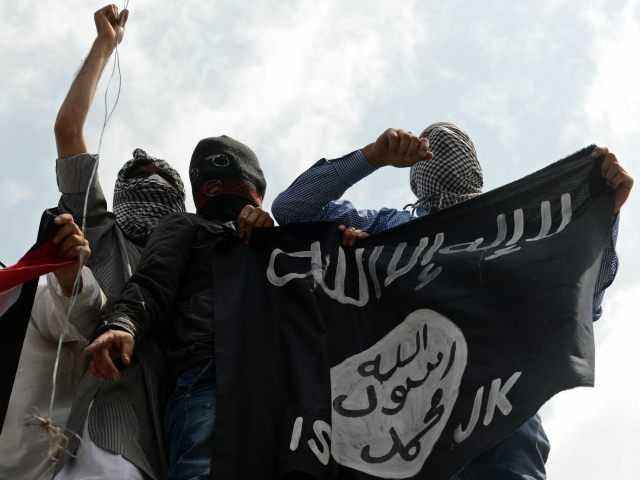While Russian-Syrian forces focus their efforts on bombing Sunni civilians in Aleppo city, far from any Islamic State strongholds, the U.S.-rebel alliance is closing in on the village of Dabiq, Syria, controlled by ISIS and believed by jihadists to be the future home of the Apocalypse.
Free Syrian Army rebels say they are about two days out of invading Dabiq, their progress severely hindered by the plentiful land mines surrounding the village. Dabiq lies close to the Turkish border, in Aleppo state but about an hour north of the city of Aleppo, where Russian and Syrian airstrikes and chemical weapons attacks have systematically targeted Sunni Muslim civilians.
The Turkish newspaper Hurriyet reports that the soldiers approaching the village are a combination of Free Syrian Army rebels supported by both Turkey and the United States, including hundreds of U.S. special forces troops. The fact that Turkey is involved in the operation implies that the Kurdish YPG — long heralded as the most efficient militia on the ground against ISIS in Syria — is not a part of this operation, as Turkey has categorically refused to work with them.
Hurriyet cites Ahmed Osman, commander of the Sultan Murad FSA group, telling Reuters that “if matters proceed as planned, within 48 hours we will be in Dabiq.” Washington’s Islamic State coalition envoy, Brett McGurk, tweeted similarly that said coalition had arrived “within a few kilometers” of Dabiq, a town that has been under ISIS control since August 2014.
Anticipating the coalition’s approach, The Telegraph reports evidence of Islamic State leaders fortifying Dabiq with “several hundred of its more experienced fighters.”
The advance into Dabiq has not been without setbacks. On Sunday, the Free Syrian Army announced that 15 of its fighters had been killed in the village’s outskirts. “We are very close to Dabiq… We have planned for this,” Osman told reporters on Sunday.
Dabiq holds little strategic importance for the Islamic State given its location far from the Syrian ISIS “capital,” Raqqa, but losing the village will make the terrorist group’s ultimate goal of bringing about the Apocalypse impossible. Muhammad is said to have predicted that the Apocalypse will occur when the “forces of Rome” invade Dabiq, but “the last hour will not come” if the Islamic army does not defeat the Roman soldiers. Islamic State terrorists interpret “Romans” to be a generalized reference to the West. To trigger the Apocalypse after losing Dabiq to “Rome,” Islamic State jihadis believe they would have to once again recapture the city to defeat the invading Western army.
The Islamic State named their English-language magazine Dabiq to underscore the importance of that location to their ultimate goal as a terrorist group: bringing about the end of the world.
The Dabiq operation is significant not just because of what it could mean for Islamic State morale. It is a joint U.S.-Turkish affair, arriving at a time in which President Recep Tayyip Erdogan has increasingly cozied up to Russia and indicated he may be willing to accept Syrian dictator Bashar al-Assad’s legitimacy if it is the only way to keep Kurdish separatists at bay.
Erdogan and his officials have expressed an increased interest in cooperating with Russia in the past month, the first time the two countries have exchanged kind statements since Russian fighter jets invaded Turkish airspace on multiple occasions, culminating in Turkish forces shooting down a Russian pilot. Moscow has suggested Russian President Vladimir Putin will visit Ankara this month, just as Erdogan grows increasingly impatient with reports that the U.S. is considering arming the YPG.
Cooperation with Washington in the immediate aftermath of America announcing it would no longer engage in dialogue on Syria with Russia is an indication Erdogan has not yet definitively abandoned working with President Barack Obama.
A successful takeover of Dabiq would also stand in stark contrast to the joint Russian-Syrian operations in Aleppo. Aleppo boasts no known Islamic State presence, but Russia and Syria insist airstrikes there are meant to hinder the terror group’s progress. Instead, with the use of illegal chlorine bombs and help from Iran, Putin and Assad have significantly limited the ability of Sunni anti-Islamic State militias to fight the terror group and similar jihadi outlets like the former al-Nusra Front. These operations also serve to weaken opposition to Assad and help the dictator consolidate his rule over parts of Syria not under Islamic State control.

COMMENTS
Please let us know if you're having issues with commenting.